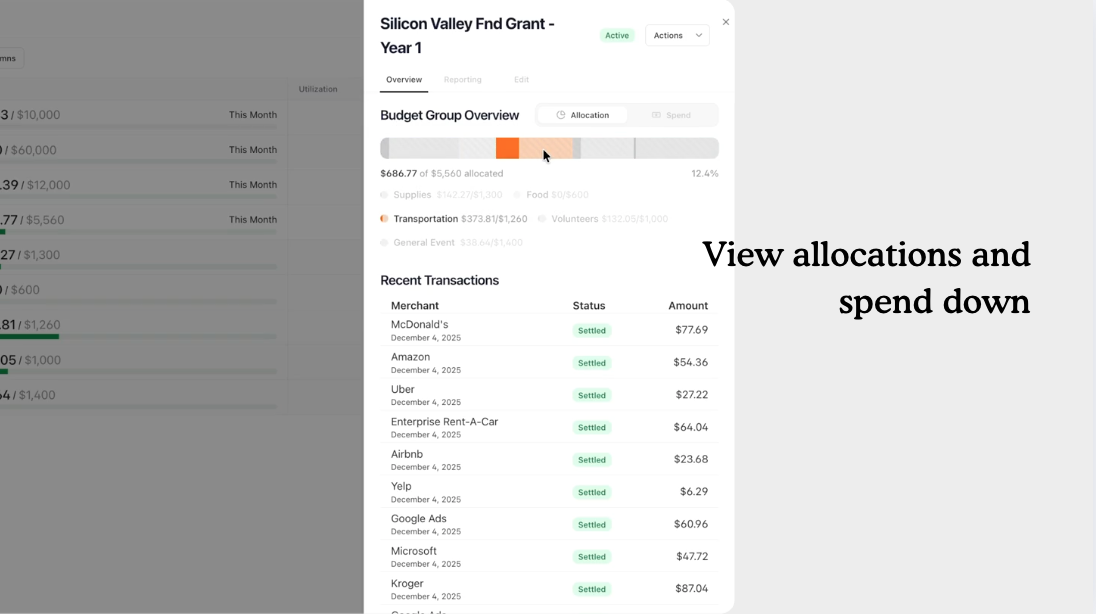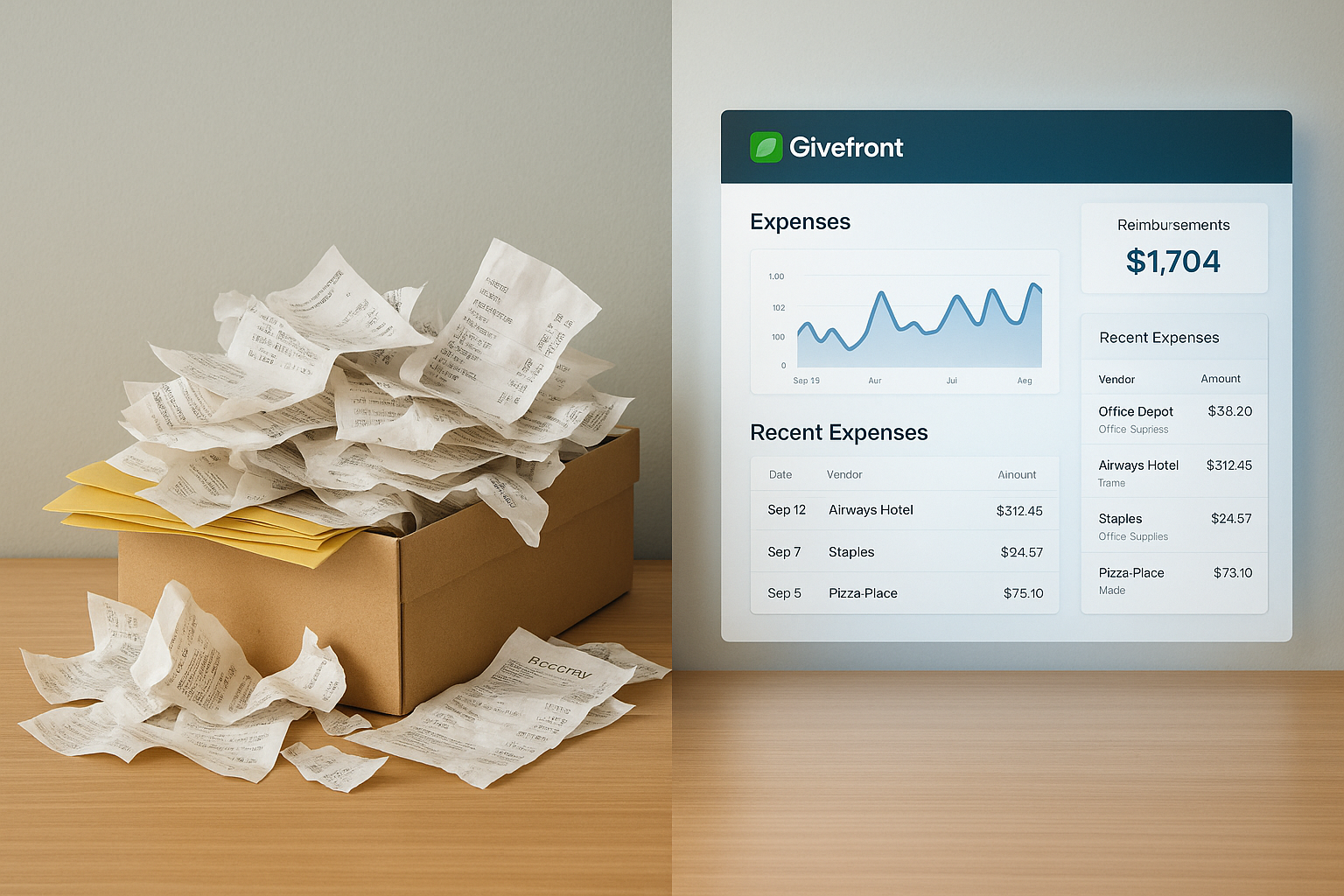For many nonprofits, grants are the lifeblood of their programs. Some grants provide funding upfront, but others are reimbursable, meaning the organization must spend its own money first and then submit proof of expenses to get reimbursed. While this model can keep organizations accountable, it often creates cash flow challenges and a heavy administrative burden.
This guide walks through what reimbursable grants are, why budgeting and tracking matter, and how nonprofits can simplify the process with the right tools.
What Are Reimbursable Grants?
A reimbursable grant is funding that is paid back to the nonprofit after expenses are incurred. Instead of receiving money in advance, the organization pays for goods or services with its own funds, submits documentation, and is later reimbursed by the grantor.
For example, a nonprofit might run a community program funded by a state agency. The nonprofit covers staff salaries, supplies, and travel, then submits receipts and financial reports to get reimbursed.
The challenge is that reimbursements can take weeks or even months. If expenses are not carefully documented and aligned with the approved grant budget, the nonprofit risks delayed payments or even denial of reimbursement.
Why Budgeting Matters for Reimbursable Grants
Budgeting for reimbursable grants is not just about forecasting. It is about ensuring that every dollar spent can be justified and tied back to the grant.
Key budgeting considerations include:
- Cash flow planning: Since funds are not provided upfront, nonprofits must plan for how they will cover expenses until reimbursements are received.
- Grant budget alignment: Expenses must stay within the approved categories of the grant proposal. Overspending in one area can result in rejected reimbursements.
- Functional expense reporting: Nonprofits must often map grant expenses to programs, management, or fundraising categories for Form 990 compliance.
Without clear budgeting, it is easy for nonprofits to overspend or misallocate funds, creating compliance risks and financial strain.
The Importance of Tracking Expenses
Budgeting alone isn’t enough. Nonprofits also need a reliable way to track what is actually being spent. Tracking in real time allows leaders to see whether expenses are on target or drifting away from the budget. It also ensures that receipts and documentation are available when it’s time to request reimbursement.
Many organizations try to manage this process with spreadsheets, but that often leads to errors and wasted time. Receipts get misplaced, staff forget to categorize transactions, and reports become difficult to reconcile. Over time, these gaps can delay reimbursements and even jeopardize future funding.
Common Pitfalls with Reimbursable Grants
Nonprofits managing reimbursable grants often run into similar problems: delays caused by missing documentation, overspending on categories that weren’t budgeted, or shortages of cash while waiting for payment. These are not just administrative headaches. They can slow down programs, reduce staff morale, and weaken relationships with funders who expect timely and accurate reporting.
How Givefront Helps Nonprofits Track Reimbursable Grants
Givefront was designed to address these exact challenges. As a nonprofit-specific spend management platform, it allows organizations to:
- Set Budgets by Grant: Create and enforce spending limits tied to specific grants or restricted funds.
- Allocate Expenses Automatically: Tag every transaction to the right grant or program category.
- Capture Receipts Effortlessly: Staff can upload or email receipts, which are matched automatically to expenses.
- Stay Audit Ready: Generate detailed reports that map directly to grant budgets and IRS functional categories.
- Manage Cash Flow: Track reimbursements in progress and plan expenses with full visibility.
By combining corporate cards, automated expense tracking, and compliance tools, Givefront helps nonprofits reduce the risk of lost reimbursements and save staff time that can be redirected to mission-driven work.
Final Thoughts
Reimbursable grants can be a powerful source of funding, but they require careful planning. Budgeting ensures nonprofits do not overextend themselves, while tracking keeps reimbursements flowing smoothly. Without the right systems, organizations risk delays, compliance issues, and unnecessary stress.
For nonprofits that want to simplify the process, Givefront offers a complete platform built specifically for these needs. With real-time tracking, grant-based budgeting, and audit-ready reporting, nonprofits can focus less on paperwork and more on impact.
👉 Learn how Givefront can help your organization budget and track reimbursable grants with confidence.
.png)












.png)


.png)
.png)











.png)
.png)

.png)